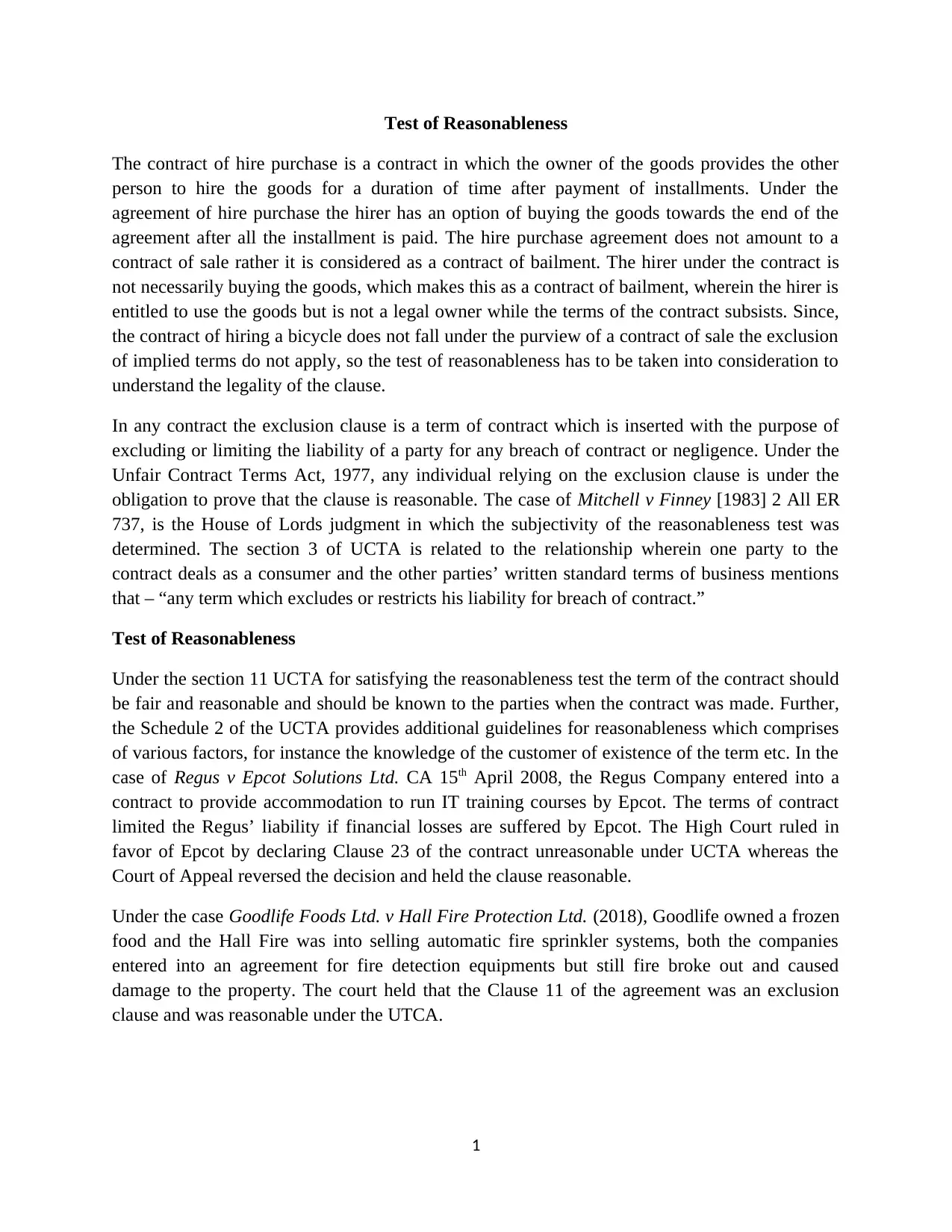Reasonableness Test Application in Contract Law: Analysis
VerifiedAdded on 2020/10/22
|1
|544
|469
Report
AI Summary
This report provides an analysis of the Reasonableness Test in contract law, focusing on the application of exclusion clauses and the Unfair Contract Terms Act (UCTA) of 1977. It examines the concept of hire purchase agreements and how they relate to the test, emphasizing that the test is not applicable for a contract of sale. The report delves into the legal framework surrounding exclusion clauses, including the requirements for reasonableness under UCTA. Several case studies, including Mitchell v Finney and Regus v Epcot Solutions Ltd., are discussed to illustrate how courts assess the reasonableness of contract terms. The analysis also includes Goodlife Foods Ltd. v Hall Fire Protection Ltd. to demonstrate the practical application of the test. The report concludes with a discussion of how the test of reasonableness is applied and interpreted within the context of contract law.







![[object Object]](/_next/static/media/star-bottom.7253800d.svg)